Makala is a french film of genre Drama directed by Emmanuel Gras released in USA on 24 august 2018
Makala (2017)

If you like this film, let us know!
Makala est un documentaire français réalisé par Emmanuel Gras et sorti en 2017. Le film reçoit le Grand prix de la Semaine de la critique au Festival de Cannes 2017.
Synopsis
C'est un documentaire tourné dans la région sud du Katanga, autour de Kolwezi, en République démocratique du Congo. Kabwita Kasongo, un jeune congolais pauvre, marié et père de trois filles, habite une case sommaire en adobe dans un village rural traditionnel et veut améliorer sa maison avec un toit de qualité. Pour cela, il projette d'acheter une quinzaine de tôles ondulées dans la ville voisine. C'est pourquoi il entreprend de se consacrer, comme de nombreux pauvres de la région, à la fabrication de charbon de bois (makala en swahili). Cette tâche immense consiste d'abord à abattre un arbre monumental à l'aide d'une hache élémentaire, à transporter et déplacer de gros blocs de bois et des branches volumineuses au prix d'efforts surhumains, puis de le transformer à la hache en une multitude de petits blocs de bois et de petites bûches. Après de longs jours de lutte harassante contre le géant végétal, il dispose le bois en un imposant dôme de plusieurs mètres cubes qu'il doit ensuite recouvrir soigneusement d'une bonne couche de terre. Puis il aménage quelques trous dans le dôme et met le feu à l'ensemble qui va se consumer lentement pour former le précieux makala. Enfin, Kabwita éteint chaque bûchette noircie en crachant dessus des gorgées d'eau.Comments
Leave comment :
Suggestions of similar film to Makala
There are 2 films with the same director, 69488 with the same cinematographic genres (including 1037 with exactly the same 2 genres than Makala), to have finally 70 suggestions of similar films.If you liked Makala, you will probably like those similar films :

Bovines (2012)
Directed by Emmanuel Gras
Origin France
Genres Documentary
Themes Films about animals, Environmental films, Films about the labor movement, Documentaire animalier, Documentary films about environmental issues, Documentaire sur le monde du travail, Films about cows, Documentary films about nature, Mise en scène d'un mammifère
Rating66%





Film documentaire sur la vie des vaches, dans leur champ, sous la pluie, au soleil...
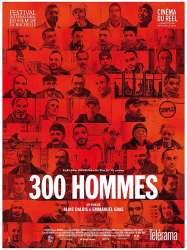
300 Souls (2015)
Directed by Emmanuel Gras
Origin France
Genres Documentary
Rating65%





L'accueil dans un centre d'hébergement et de réinsertion sociale dans le quartier de la Joliette à Marseille : l'établissement, géré par la Fondation Saint-Jean-de-Dieu, dispose de 300 places pour des hommes « sans abri ».

Solidões (2013)
Directed by Oswaldo Montenegro
Origin Bresil
Genres Drama, Comedy, Documentary, Action, Musical, Romance
Actors Vanessa Giácomo, Oswaldo Montenegro
Rating62%





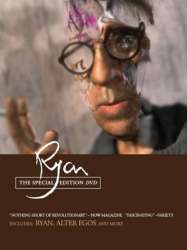
Ryan (2004)
, 13minutesDirected by Chris Landreth
Origin Canada
Genres Drama, Documentary, Fantasy, Animation
Themes Films about alcoholism, Films about films, Medical-themed films, Films about drugs, Documentary films about business, Documentary films about the visual arts, Documentary films about the film industry, Documentary films about law, Documentaire sur une personnalité, Documentary films about health care, Films about psychiatry, Films about disabilities
Actors Ryan Larkin, Chris Landreth
Rating74%





 , 2h15
, 2h15Directed by Mick Jackson
Origin USA
Genres Drama, Thriller, Documentary
Themes Prison films, Films about capital punishment
Actors Lolita Davidovich, Shirley Knight, Mercedes Ruehl, Henry Thomas, Sada Thompson, James Woods
Rating75%





Un avocat risque sa carrière et sa réputation pour défendre les Mc Martin qui sont accusés d'abus sexuel ritualisé sataniste sur des enfants. Le procès durera six années.
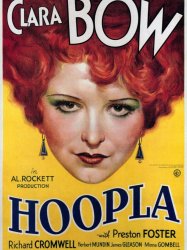
Hoopla (1933)
, 1h25Directed by Frank Lloyd
Origin USA
Genres Drama, Documentary
Themes Circus films, Théâtre, Films based on plays
Actors Clara Bow, Preston Foster, Richard Cromwell, Minna Gombell, Herbert Mundin, James Gleason
Rating65%





Bow plays a carnival performer who sets out to seduce the boss' son in order to win a bet.

The King (2007)
, 1h40Genres Drama, Biography, Documentary
Actors Stephen Curry, Stephen Hall, Shaun Micallef, Monica Maughan, Jane Claire Allsop, Angus Sampson
Rating66%





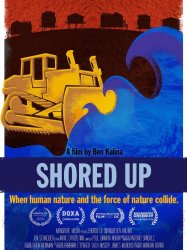
Shored Up (2013)
, 1h24Origin USA
Genres Drama, Documentary, Historical
Themes Environmental films, Documentary films about environmental issues
Rating73%





The film explains the dangers of accelerating Sea-Level Rise through devastating effects of Hurricane Sandy.

In the Wake of the Bounty (1933)
, 1h6Directed by Charles Chauvel
Origin Australie
Genres Drama, Documentary, Action
Themes Seafaring films, Transport films
Actors Errol Flynn, Charles Chauvel, Elsa Chauvel
Rating47%





Chauvel's film uses introductory enacted scenes showing the mutiny, followed by documentary footage, anthropological style, of the mutineers' descendants on Pitcairn Island. Chauvel also used footage of Polynesian women dancers; and film of an underwater shipwreck, filmed with a glass bottomed boat, which he believed was the Bounty but was probably not. This was Chauvel's first 'talkie' and he had clearly at this stage not yet learned to direct actors: the dialogue is very stiff and amateurish. The use of long sections of documentary footage with a voice over, combined with acted scenes, is similar to the hybrid silent and talking pictures that were produced during the transition to sound. It also represents the combination of interests of the director, and he returned to documentary toward the end of his career with the BBC television series Walkabout. Despite the poorly written dialogue, the documentary sections retain their excellence. A return to enactments at the end of the film, with one scripted modern scene in which a child suffers because of the lack of regular ship visits which could have taken the child to hospital, probably sought to make the film a useful voice for the Pitcairn Island community, who had been generous with their participation.
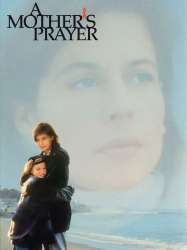
A Mother's Prayer (1995)
, 1h34Origin USA
Genres Drama, Documentary
Themes Medical-themed films, HIV/AIDS in film
Actors Linda Hamilton, Kate Nelligan, Sharon Epatha Merkerson, Bruce Dern, RuPaul, Alex Kapp Horner
Rating65%





 Connection
Connection